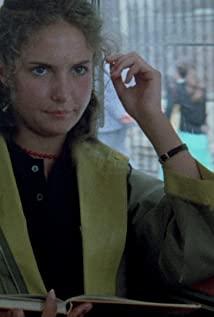Girlfriend's boyfriend? This is the Chinese translation of the film. When I saw the title of the film, that strong moral connotation came to my face. Before we watch the movie, we have every reason to guess the plot of the movie based on our personal moral consciousness. This is a film in which love and friendship are intertwined, and which is more important depends entirely on each person's moral tastes. I think this is also Rohmer's usual "open structure". The ethical field is inherently an open space where everyone has a say.
What kind of fascinating story is this? During lunch time, Blaisha, who works in the government department, met Leah, who was about to graduate from college. After talking, the two became close friends. Later, while Brytha goes on vacation, Leah starts dating Brytha's boyfriend, Fabin. In fact, we can all feel that Brytha is gradually falling in love with Fabin, but she is under moral pressure (because she should not fall in love with her best friend's boyfriend), so "love" is difficult to say. Cleverly, Fabin felt that Brasha was not the ideal lover in his mind, and he fell in love with Leah. The physical urge inevitably occurs, and Leah can accept Fabin with peace of mind without the moral pressure of "snatching her girlfriend's boyfriend" on her back. To complicate matters, Leah has always had a crush on engineer Alexander.
Blaisha is back from vacation, which can already pose a threat to the relationship between "Lea and Fabin". Even more deadly, she told Leah that she didn't realize that she loved Fabin until she was separated from Fabin. Leah's feeling was tantamount to being suddenly stabbed by Blaisha. In the film, Leah cried out of control more than once, and we can fully understand that she was crying because of the moral condemnation in her heart. She still cherishes Brasha, her best friend, but blind lust can easily destroy everything, and morality is often the first to bear the brunt. And Alexander was always courting Brytha, and sarcastically satirized Leah in front of Bleisha, because Leah was not his type.
The screenplay of this film is brilliant. When Leah fell in love with Fabin, Brytha, who was her ex-girlfriend, just didn't love him anymore. In this way, Leah is freed from the embarrassing status of "third party" without having to live in the shadow of immorality. I think this is the most comical part of the movie. In the face of love, both men and women are often driven by lust and at a loss, so at this time traditional morality often suffers a violent impact and loses its balance. Rohmer, however, subtly adjusts this moral imbalance in a comic way.
I noticed an interesting phenomenon near the end of the movie, I think it was the director's arrangement, or maybe some kind of coincidence. At the end, Blaisha and Fabin are both in blue, while Leah and Alexander are both in green, like a couple. At this time, Blaisha's lover is Alexander, and Leah's other half is Fabin. Judging by the color of the clothes, Rohmer seems to be implying that Brasha and Fabin, who is also wearing blue, were once a couple, and that Leah was supposed to be with Alexander. The results were mixed. The two different colors blue and green actually suggest two different personalities. Rohmer probably felt that "two people of the same color" would be mutually exclusive when they were together, because the same sex repelled each other. And he just subtly adjusted the moral imbalance again from the perspective of color science.
The film only begins with a sketchy account of Brasha's workplace, which she "never went back to" afterwards. The entire film is narrated around the emotional lives of Brytha and Leah, Bleisha and Fabin, and Leah and Alexander. Rohmer is very good at discussing morality in terms of the emotions and relationships between the sexes, so it is difficult to detect the kind of "moral anxiety" similar to Kiestorowski in his films. His moral stories all take place in an atmosphere of grace and ease. If Kiestorowski's moral thinking puts people on a tightrope, then Rohmer's moral thinking puts people on a seesaw. Rohmer can definitely be called a profound director, and his outstanding talent is reflected in this ability to see the big from the small.
Rohmer's writing on moral issues can be called to the point, especially the novel and bizarre "The Marquise of O" that I have never forgotten. I even think that movie benefits from Kafka's classic The Metamorphosis. In Kafka's novel, the protagonist K turns into a beetle after waking up, and his relatives gradually alienate him. And in Rohmer's "The Marchioness of O", the marquise is "unexpectedly pregnant" during a war, and his relatives loathe her for her guilt in the flesh. Of course, Rohmer's moral musings in "My Girlfriend's Boyfriend" are entirely in a relaxed atmosphere, not as absurdly alienated as "The Marchioness of O."
Rohmer was always in a state of thinking. Finally, at the end of the film, it tells us a simple but often controversial truth, that love and friendship are not in conflict.
View more about Boyfriends and Girlfriends reviews







